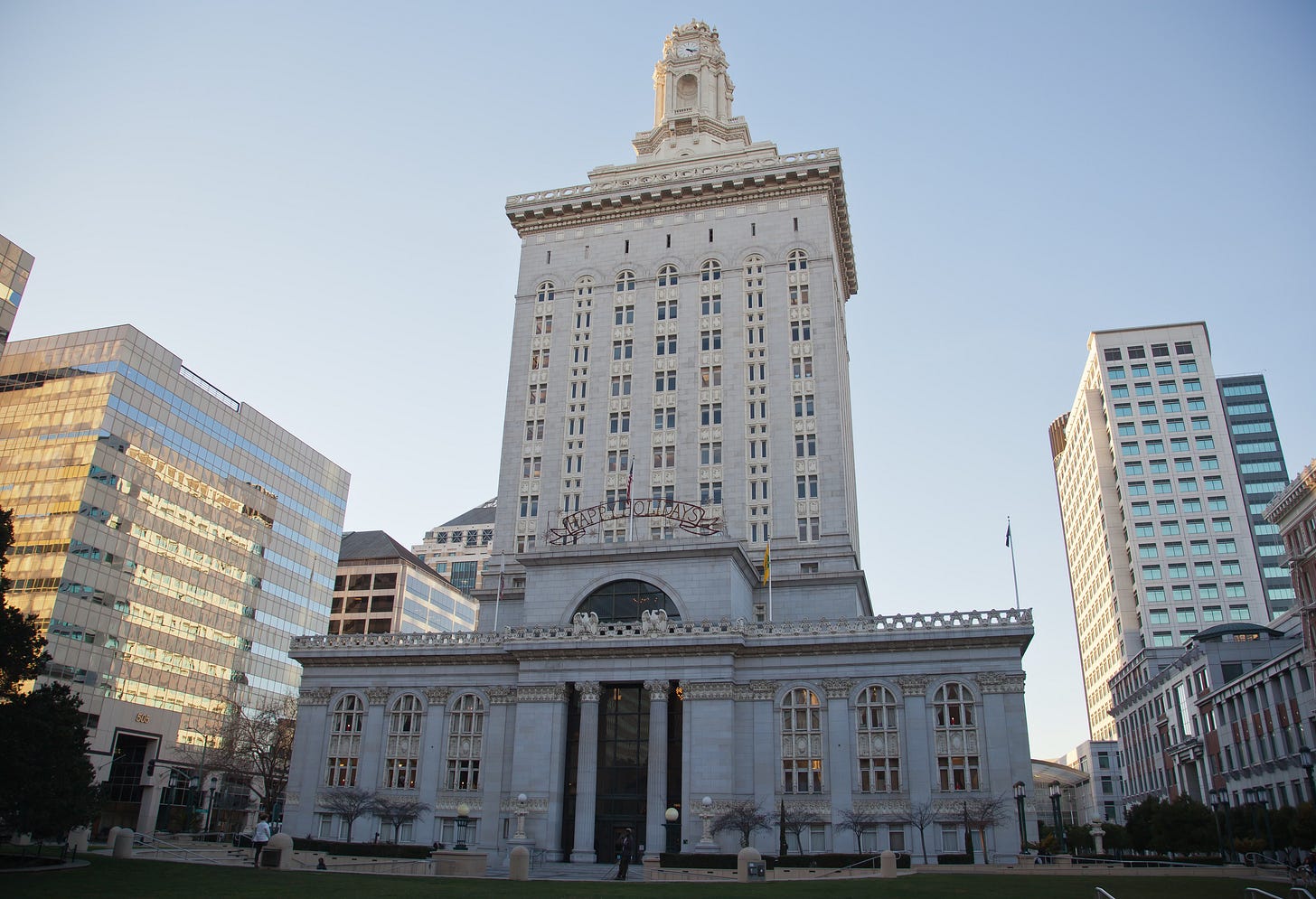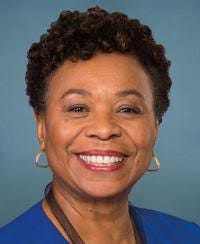Barbara Lee Confronts the Challenge of Legislators Becoming Executives
Barbara Lee, the long-serving and respected former congresswoman from California, is in the midst of a race to become the next mayor of Oakland. Early voting has already begun ahead of the April 15 special election, which will determine who fills the vacancy left by former mayor Sheng Thao, whom voters recalled amid growing frustrations over crime, homelessness, and the city’s budget crisis, in addition to corruption issues that surfaced.
The veteran legislator is seeking to step into a position that carries immense challenges—chief among them crime, homelessness, and economic struggles. While Lee has a strong progressive record in Congress and has long been a voice for social justice, the transition from legislator to chief executive has historically proven difficult for many—and has become a topic of discussion during the campaign.
Barbara Lee’s main opponent is Loren Taylor, an Oakland City Councilmember representing a District, which includes the East Oakland neighborhoods of Maxwell Park, Millsmont, Havenscourt, and Eastmont. Taylor, a third-generation Oakland native, brings a background in engineering and community advocacy to his campaign. Elected to the City Council in 2018, he has worked on homelessness, public safety, and economic inequality, emphasizing innovation and pragmatism in local governance.
This election presents Oakland voters with a choice between two very different paths: Lee, a veteran legislator with national experience but little executive governance, and Taylor, a hands-on city policymaker with local ties and a technocratic approach.
Lee’s decision to run comes on the heels of her disappointing fourth-place finish in the California Senate primary, a race that saw her overshadowed by fellow Democratic contenders Adam Schiff and Katie Porter and Republican, Steve Garvey. Now, she turns her sights to a city grappling with issues that have confounded leaders for years. But history suggests that the road from Capitol Hill to City Hall is fraught with pitfalls.
One of the most pressing questions surrounding Lee’s candidacy is: after decades in Washington, why would a former congresswoman whose 79th birthday is on the horizon want to take on one of the toughest municipal jobs in America?
Several factors may be at play:
Unfinished Business in Oakland – Lee has long been a champion for her hometown, and after serving at the federal level for decades, she may feel a sense of duty to return and directly confront the challenges Oakland faces. Many longtime legislators see executive roles as an opportunity to make a tangible, immediate impact on communities rather than working through the slow-moving gears of Congress.
A Desire for a Legacy-Defining Role – After losing the Senate race, Lee may see this as her last major political opportunity to cement her legacy. While she has left a strong mark on national politics—particularly in areas of social justice and progressive policy—becoming mayor would allow her to shape Oakland’s future in a hands-on manner.
Frustration with Federal Gridlock – The U.S. House of Representatives, where Lee served for nearly 30 years, has become increasingly dysfunctional. With partisan divides and legislative roadblocks, it has become harder to enact meaningful change. Running a city offers a more direct way to implement policy without waiting for a divided Congress to act.
The Karen Bass Model—With Caution – Lee may look to her contemporary, former congresswoman Karen Bass—who became mayor of Los Angeles in 2022—and believe she can similarly transition into local leadership. However, Bass is currently facing a recall effort, as frustrations mount over crime, homelessness, and public safety in L.A., along with scrutiny over her ill-advised trip to Ghana at the onset of the recent California wildfires—underscoring just how challenging the mayor’s office can be for former legislators.
The "Not Ready to Leave the Stage" Factor – Many older politicians struggle with the idea of retirement, and Lee may be no exception. Across the political spectrum, we see leaders who, despite advancing age and long tenures, refuse to step aside. From Joe Biden (81) and Donald Trump (77) running for another presidential term to Nancy Pelosi (84) seeking reelection in the House, there is a growing pattern of veteran politicians unwilling to exit the stage. Lee may feel that she still has more to give, or she may simply not know life outside of public service.
Being a legislator is a markedly different role than being an executive. Legislators craft and debate policies, push agendas through committees, and work within the framework of a larger legislative body. Executives—mayors, governors, and presidents—must implement policies, manage crises, oversee vast bureaucracies, and make unpopular decisions without the luxury of hiding behind consensus-building.
Many former members of Congress have struggled in the transition to running cities, and Oakland is no easy city to govern. It faces deep-rooted crime problems, a struggling economy, and an ongoing housing crisis. If elected, Lee would need to immediately address these urgent issues while also managing a city workforce and navigating municipal politics, which differ significantly from the legislative wrangling of Washington.
Barbara Lee’s campaign for mayor of Oakland follows a recurring pattern in American politics, where members of Congress often struggle to transition into executive leadership. History offers cautionary tales: John Lindsay, once a charismatic congressman, faced widespread criticism during his tenure as New York City mayor due to labor unrest, economic challenges, and mismanagement. In Los Angeles, Antonio Villaraigosa—though experienced in the California State Assembly—saw mixed results as mayor, with failed school reforms and uneven public service performance. The leap from legislative to executive roles frequently exposes a lack of operational control, political agility, and administrative experience required to govern complex urban environments.
Yet, exceptions like Harold Washington and Ed Koch demonstrate that success is possible when congressional experience is paired with grassroots support and executive acumen. Washington, Chicago’s first Black mayor, translated his legislative background into bold, reform-driven leadership, strengthened by a diverse, loyal coalition and deep public engagement. Koch, a former congressman turned three-term New York City mayor, helped rescue the city from fiscal crisis through tough, pragmatic decisions and a plainspoken style that resonated with voters.
But when it comes to former legislators’ mayoral difficulties, Barbara Lee need look no further than her former boss and mentor, Ron Dellums, to understand the risks of transitioning from Congress to City Hall. Dellums, a progressive icon who represented Oakland in Congress for nearly three decades, was persuaded to run for mayor in 2006. His campaign was built on his deep ties to the community and his reputation as a fighter for social justice. However, once in office, he quickly gained a reputation for being disengaged, reluctant to make tough decisions, and absent from key moments of city governance.
Some of the biggest criticisms of Dellums’ mayoral tenure included:
Failure to Address Oakland’s Crime Problem – Crime surged under his leadership, with some critics accusing him of taking too ideological an approach to policing rather than implementing practical solutions.
Distant Leadership Style – Dellums was often described as detached, preferring to work behind the scenes rather than be a visible, active mayor. At one point, reports surfaced that he was frequently out of town, making it difficult for city officials to get direct guidance from him.
Lack of Urgency on Budget and Economic Issues – The city faced financial difficulties, and Dellums struggled to enact clear solutions to stabilize Oakland’s economy.
His term ended in disappointment, and his successor, Jean Quan, inherited many of the unresolved issues that had festered during his administration. Dellums’ legacy in Congress remained strong, but his time as mayor showed the stark contrast between legislative and executive leadership. Barbara Lee would do well to study the reasons for his struggles before assuming she can make a smooth transition to the mayor’s office.
One unavoidable question in Barbara Lee’s mayoral campaign is age. At 78, she would be among the oldest mayors of a major U.S. city. While she remains a sharp, passionate advocate, the physical and mental demands of leading Oakland—where the mayor is expected to respond swiftly to crises ranging from crime to budget shortfalls—are intense. Unlike Congress, the role of mayor offers little room for delegation and requires round-the-clock, hands-on leadership. Though Lee may well be up to the task, voters will naturally consider whether she has the stamina and agility to meet the city’s challenges head-on.
If Barbara Lee is elected, she will inherit a city in distress. Oakland has seen an uptick in violent crime, businesses fleeing its downtown core, and a persistent homelessness crisis. Additionally, the city’s finances are in peril, making new investments in public safety and housing difficult without significant political maneuvering. The situation is further complicated by the Trump Administration’s financial retrenchment in support for local governments.
While Lee’s legislative experience and deep community ties will help her on the campaign trail, governing is a different battle altogether. She will need to quickly assemble a strong leadership team, build coalitions with city council members, and make tough executive decisions that may not always align with her legislative instincts.
Oakland operates under a hybrid government structure combining elements of the council-manager and strong mayor systems, following the passage of Measure X in 1998, which expanded the mayor’s powers. Despite these changes, the mayor lacks full control over key areas of governance, leading some to view the role as weaker than in other strong mayor cities. As a result, opinions on the position vary—some see the mayor as a dynamic civic leader, while others view it as largely symbolic and constrained by bureaucratic limitations. These factors will make the job more challenging for someone who hasn’t been engaged at the local governmental level.
Barbara Lee’s candidacy will test whether a longtime legislator can overcome the well-documented struggles of former members of Congress who have become mayors. While her progressive credentials and deep commitment to Oakland are unquestionable, success will depend on her ability to shift from policymaker to problem-solver in one of America’s most challenging urban environments.
If history is any guide, she has a difficult road ahead. But in a city that has seen its share of political shakeups, can Barbara Lee prove to be the exception rather than the rule?
Seen and Noted
Articles That Caught My Eye
How Elon Musk’s SpaceX Secretly Allows Investment From China
Trump has blown up the world order - and left Europe's leaders scrabbling
Federal workers fired in anti-DEI purge say it was because they're not white men
Hands Off Social Security: Drastic DOGE-Backed Changes Put Benefits for Millions at Risk
Lesotho insulted after Trump says nobody has heard of the country




